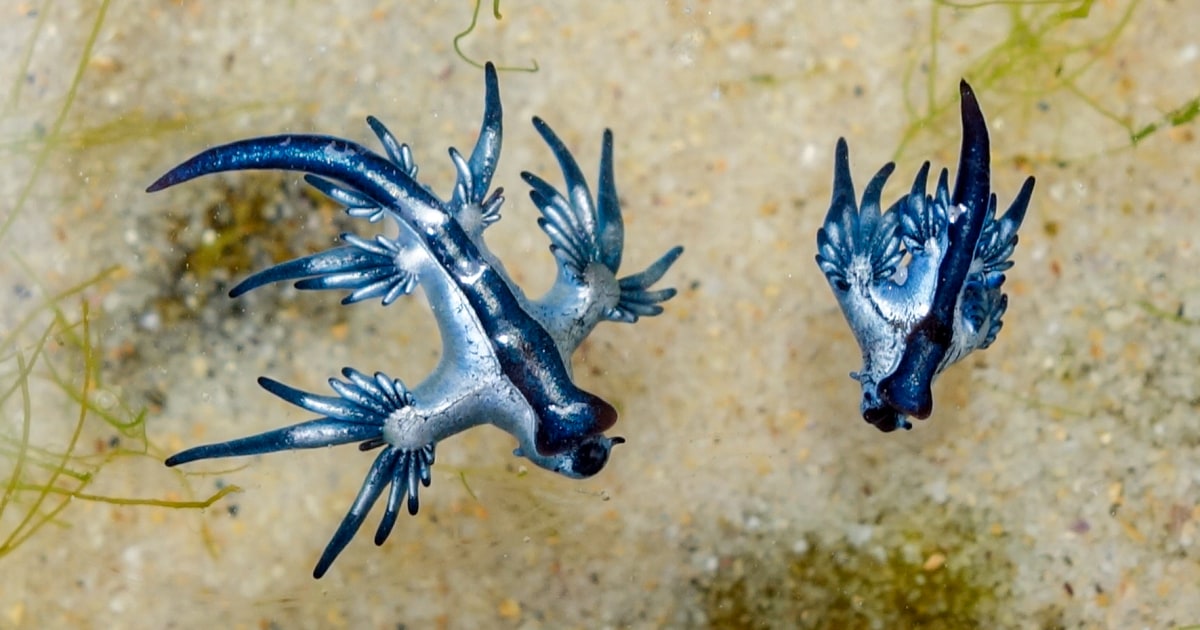By Evan Bush -
NBC News
Lobsters, octopuses and crabs are already on the list of animals that the United Kingdom plans to classify as beings that can feel pain, something that could change the way these animals are treated and euthanized in that country.
The British Government, which is updating its legislation regarding animal welfare after leaving the European Union, added last week to the family of cephalopods (such as squid and octopus) and decapods (lobsters, crabs and shrimp, among others) to the list of species included in
a bill that would formally recognize the ability of some animals to have sensations such as pain
.
As part of this legislation, a committee will also be created that will make public policy recommendations that take into account the ability of these animals to feel.
[COP26 draft calls for ending fossil fuel subsidies]
Originally only animals with backbones were considered to be included on this list, but invertebrates such as lobsters, octopuses and crabs were added after a report from the London School of Economics found that these animals can experience pain and suffering.
A live lobster that is too small is thrown back into the sea after falling into a fishing trap.WoodysPhotos / Getty Images / iStockphoto
The researchers evaluated more than 300 studies on neurological or behavioral indicators in these invertebrate species, said Jonathan Birch, a professor at the London School of Economics and principal investigator of the Foundations of Animal Sentience project.
The studies examined things like whether animals have pain receptors, whether they demonstrate the ability to learn, and how they respond to pain-relieving medications.
“In all cases, a balance of the evidence seems to show that there is sensitivity.
In octopus, the evidence is pretty solid.
And with regard to shrimp ... there the certainty is much lower, ”explained Birch.
[Mysterious mangroves in Mexico give clues about what the sea level will be in the future]
Millions of red crabs paralyze traffic on Australia's Christmas Island
Nov. 23, 202101: 42
Birch said researchers are interested in
a variety of feelings animals can have, including joy, pleasure and well-being
.
But pain and suffering have a particular relevance in the laws related to the protection of animals.
The regulatory changes will have no immediate consequences for restaurants and fisheries-related businesses, but may help shape UK policies on animal welfare in the future, according to a government press release.
When new governance measures are put in place, ministries will have to assess their impact on animals and how they feel.
"When you consider something a sentient being, you begin to take into account the same kinds of accepted principles for other sentient beings," Birch said.
“Humanitarian killing requires training.
These are principles that people readily attach to any vertebrate, "he added.
[Planet Earth: Around 300 turtles are returned to the sea in Ecuador]
The report takes into account concerns about the impact of commercial practices on animal welfare and recommends against some of them such as
boiling live lobsters without stunning them first
, manually clawing crabs while alive (and then returning them to the water) or sell live decapods (crustaceans) to people not trained to handle them.
In Colombia they create a sanctuary to give refuge to animals rescued from abuse
Oct. 26, 202102: 23
The researchers were unable to identify a humane way to kill octopuses and other cephalopods that is commercially viable, the report said.
The report says that methods mainly used by fishing boats in European waters to kill animals such as
hitting them with sticks, slicing their brains or suffocating them in a suspended net bag
should not be accepted
.
"Research is really lacking in this area," Birch said.
“Methods that are considered the humane standard of slaughter in science cannot be used on a commercial scale to produce an edible product.
That is a fundamental problem that we want to bring to light, "he explained.
[This is how they try to save the world's largest green macaw from extinction]
The animal welfare law is being discussed in the upper house of the United Kingdom's parliament, the House of Lords, before it reaches the House of Commons, where it is expected to pass.









/cloudfront-eu-central-1.images.arcpublishing.com/prisa/KMEYMJKESBAZBE4MRBAM4TGHIQ.jpg)


